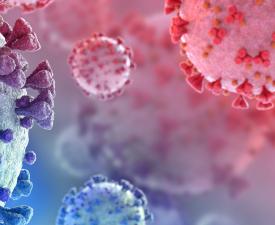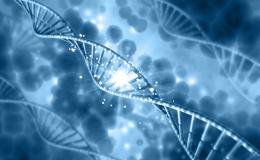What's Wrong with Rapid Antigen COVID Testing?
January 12, 2021
Back in November of 2020, Elon Musk began experiencing some mild COVID-19 (COVID) symptoms--sniffles, a cough and slight fever1--and took four rapid antigen tests to determine whether or not he had COVID.

Much to his consternation, two of Mr. Musk’s tests came back positive and two came back negative for COVID. The tests were performed on the same day, administered by the same nurse and read on the same machine.2 His public announcement of his COVID testing results left many people wondering how such conflicting diagnostic results could be possible and questioning the validity and utility of all COVID testing.
Mr. Musk’s conflicting test results, while not ideal, make more sense in the context of rapid antigen test sensitivity, or the ability of the test to accurately identify individuals with COVID. Recent research suggests that nearly 40% of asymptomatic COVID-positive cases may be missed if only rapid antigen, rather than PCR-based, testing is used. The study found that rapid antigen testing is less sensitive than PCR-based COVID testing and that the SARS-CoV-2 (CoV-2, the virus that causes COVID) viral load, or amount of CoV-2 present in the body, must be higher for rapid antigen tests to accurately detect infection. Importantly, all of the individuals tested in the study were either pre- or asymptomatic, and individuals in the early stages of CoV-2 infection typically have lower viral loads.3 Because of this, the rapid antigen COVID testing some organizations regularly use to test asymptomatic populations in, say, a workplace, prior to boarding an aircraft or at a sporting event has roughly the sensitivity of a coin flip and may inadvertently give tested individuals and organizational leaders a false sense of security.
The lower sensitivity of rapid antigen testing does not, however, mean that this or all other forms COVID testing are useless. The rapid antigen platform is currently the most common rapid COVID testing method available, meaning a patient can obtain test results in a matter of minutes rather than days. Rather, healthcare professionals and organizations must be aware of the limitations of antigen testing and interpret test results in that context. Some rapid antigen tests, in fact, are only FDA-approved for use in symptomatic patients, which typically have a higher viral load, increasing the accuracy of the test.4 Alternatively, molecular-based COVID testing methods, including PCR-based methods, more accurately identify CoV-2-infected individuals with lower viral loads, making the tests more sensitive than their rapid antigen counterparts. Unlike rapid antigen testing, molecular-based test results can take up to a few days to receive, but the results are more reliable.
Given the lower sensitivity of rapid antigen testing, many organizations have opted for molecular-based COVID testing methods to maintain safe environments during the pandemic. Likewise, Mr. Musk elected to take the more sensitive PCR-based COVID test after his four rapid antigen tests and later stated that he had, in fact, been infected with CoV-2.5 Depending on variables such as the size of the population to be tested and the level of infection in the community, regular COVID surveillance testing, or sentinel testing, using molecular-based methods can more accurately assess the level of infection within a population with the added benefit of isolating infected pre- or asymptomatic individuals, curbing the spread of the virus. Kailos Genetics has developed the economical and fully customizable Assure SentinelTM COVID-19 Testing Program, utilizing molecular-based methods, to allow organizations of any size to operate safely during the pandemic. Click here to learn more about the program or contact us with any questions you may have regarding COVID testing.
1https://twitter.com/elonmusk/status/1327210365713743872
2https://twitter.com/elonmusk/status/1327125840040169472
3SYNLAB International GmbH. Medical data reveal that almost 40% of SARS-CoV-2 carriers can be missed by rapid antigen tests. https://www.synlab.com/human/news/news-article/medical-data-reveal-that-almost-40-of-sars-cov-2-carriers-can-be-missed-by-rapid-antigen-tests-91
4Wu, Katherine J. A rapid virus test falters in people without symptoms, study finds. The New York Times. https://www.nytimes.com/2020/11/02/health/coronavirus-testing-quidel-sofia.html
5https://twitter.com/elonmusk/status/1329103547397496834




